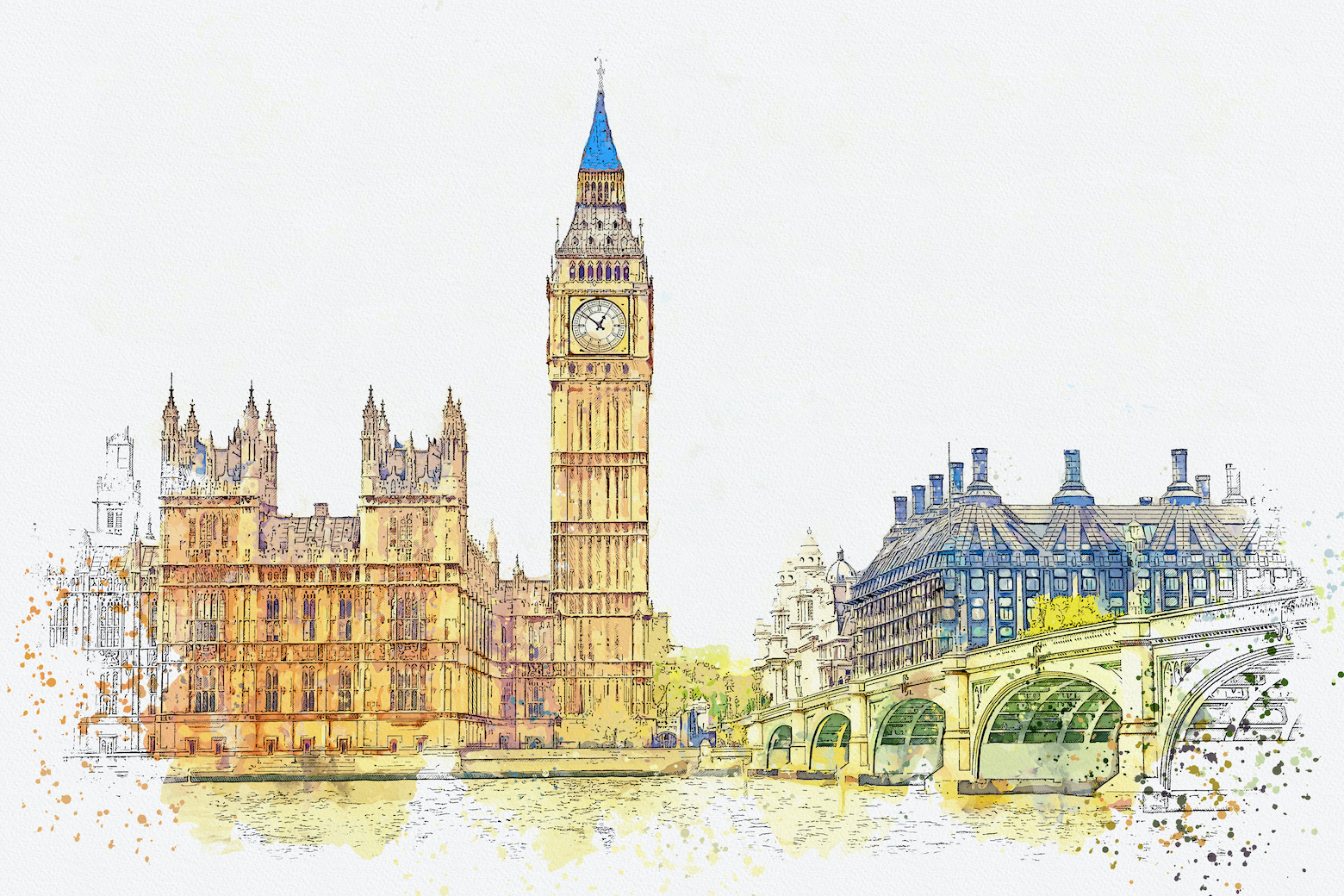English law has evolved over time into what is now known as English common law. Numerous events have shaped English law. Further, English law has served as a model for the legal systems of many nations, and has had a huge impact on the laws of international commerce. The following examines English law through the ages.
- English Legal History - A Variety of References
- English Common Law - An Overview
- Roman Law - The legal system that heavily influenced English Common Law
- Common Law & The Laws of the United Kingdom - A Research Guide
Anglo-Saxon
Anglo-Saxon law governed England prior to the conquest of England by William of Normandy. It was one of the earlier bodies of written law, deriving many principles from Germanic customs in North-west Europe. Many of these customs were in part derived from interaction with the Roman Empire, as well as Roman law. Most of these dealt with trade.
- Anglo Saxon Law - Extracts and Examples
- Anglos Saxon Legal System - An In Depth Analysis
- Regia Anglorum - The Law in Anglo-Saxon Germany
- Anglo Saxon Law & Order - From BBC History Trails
- Alfred the Great - Anglo-Saxon King who had great impact on the law
- Anglo-Saxon Judiciary - Law Enforcement in Anglo-Saxon England
The Middle Ages
Following the conquest of England by William of Normandy, England became a Catholic nation. Legal reforms defined the King as defender of the Church, and eventually came to define the notion of the state. New laws also defined the role of the Church, and its attitudes toward non-Catholic beliefs and practices. Clergy held great sway in the design and enforcement of the legal system.
- English Law in the Middle Ages - From the Medieval Sourcebook
- The Magna Carta - Document that Defined the Role of the People & the Sovereign
- Secular Law in the Middle Ages - The Roman Legal System
- Treason in the Middle Ages - How English Law Dealt with Treason
- Law in Medieval Europe - A Timeline of Important Events
17th Century
By the 17th century the reformation had taken hold in Europe, and the Church of England took the position in politics that the Catholic Church had held. This made its mark in several ways legally, as clerical power began to fade the power of the monarch was made more absolute. This culminated in the regicide of King Charles I, and a brief Commonwealth. As the 17th century came to close England was more secular, and officially a constitutional monarchy with limited powers for the King.
- The English Bill of Rights - Text of the Act
- King James I - The King who commissioned the 'Official Bible' for England
- Salem Witchcraft Trials - Including their basis in English Law
- The Glorious Revolution - The English Oust the Monarch to prevent a new Catholic Dynasty
- Witch Hunts - Common Errors & Myths
- 17th Century English Law - A Collection of Statutes from the period
18th Century
In the 18th century the specifics of the English legal system began to take shape. The state began to take a role in the prosecution of criminals, which previously was usually done by the victim. Graduated penalties for crimes replaced the previous catch all of execution. At the same time superstition held great sway as well. Witchcraft was a crime, and one often punished with death. The Church still held sway within the legal system as clergy could have crimes transferred to Church courts where non-clergy likely faced death.
- The Enlightenment - The Movement that led to Increased Secularism in English Law
- Making Sense of English Law - Law Enforcement in 18th Century England
- 18th Century Resources - Includes Several for Britain
- Women and the Law - A look at Women Under English Law of the time
- English Law in the Colonies - Applications of English Law in North America
- England in the 18th Century - A Research Guide
19th Century
In the 1800s English law was extensively reformed and made uniform. Contradictory laws that had arisen from regional traditions began to be made consistent. County courts, and public prosecution made enforcement of the law equally more uniform. Privileges for clergy began to be phased out as well. By the end of this period the treatment of women under the law began to become closer to that of men as well.
- Orphans in 19th Century England - Includes Legal Circumstances of Orphans
- Property Rights of Women - A Look at Women in 19th Century England
- Illegitimate Children and the Law -Changes in England in the 19th Century
- The Slave Trade Act - 1807 Abolition of Slavery in England
- 19th Century England - Includes Large Section on Political Reforms
- Juvenile Crime - Social Reforms in 19th Century England
20th Century
While the slave trade had been abolished in the 19th century, it did not change the status of existing slaves. Legal changes in 20th Century England dealt extensively with equal treatment under the law. Many nations already using a system modeled after English common law made similar reforms. Late in the 20th century laws regarding the role of England within the European Union began to appear.
- Family Law in the 20th Century - From the Oxford Journal of Legal Studies
- EU Law as a Source of UK Law - How EU Law Affects the Law in England
- Law, Economy, and Society - British Law of the 20th Century
- Education in England - 19th and 20th Century Reforms
- England in the 20th Century - Includes Social Reforms
- Social Policy in the United Kingdom - An Introduction
("Legal information found on this page does not constitute legal advice.")

